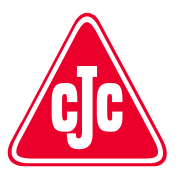The engine will bring you out at sea and back home, but your hydraulic will bring in the catch to pay your bills.
Hydraulic systems are very important to make sure you get your catch hauled. If your hydraulics fails and you can’t haul, you don’t get paid. So how do you try to maintain the reliability of your hydraulic system?
Once again, the CJC filtration can help you. To reduce wear and tear, it is important to keep your hydraulic oil, clean, dry and cooled.
Unfortunately, I am sure most of you have experienced hydraulic failure when you had to use the hydraulic system. Why did it fail and why now are questions you might have asked yourself.
The hydraulic system is very important to fishing operations and therefore should be dealt with as an extremely important part of the fishing vessel. The engine will bring you out at sea and back home, but your hydraulic will bring in the catch to pay your bills. Therefore, a reliable hydraulic system is essential for all.
New oil is not clean, and new oil in an old tank is certainly not clean, says Jan Foged, C.C.JENSEN filtration expert and Technical Advisor / MLA I&II in Ireland.
Keep it clean, dry and cooled.
I can´t say this enough times. 70% of all hydraulics failures are due to contamination. Water, particles or varnish are all contamination in the oil that can cause a breakdown. But how do they get into the system?
New oil is not clean oil, so some contamination will come from the oil supplied, some will have been built into the tanks from the beginning – it’s almost impossible to prevent that. And some will enter over the years, through breathers or work being done on the system.
Some is generated in the system, especially varnish (by-products of oil breaking down, mostly due to high temp.) but wear and tear happens over the years, which will lead to more wear on the pumps, valves or cylinders.
“These particles accelerate wear and tear, which leads to failure in pressure because of pumps wearing out, or valves no longer opening or closing properly, often resulting in reduced reliability.
“Water gets in via failing seals on fish pump, coolers or condensation. That water will quickly lead to oil break down, rust and extra wear, because lubrication is no longer there. Most inline filters will not be able to remove the very small particles or the water,” says Jan Foged.
Varnish is becoming a bigger and bigger issue for oil – sticky valves is a clear sign of high varnish levels in your oil. Failure to get the right pressure could also be a sign.
Because the oil volumes usually are smaller, they are stressed more and often overheated which leads to varnish build-up. And varnish will stick to surfaces inside the system and reduce lubrication, which again will increase the wear. Bad circle of life – you want to be in a good circle of life
What can be done?
Instead of changing chemically good oil, you just need to maintain it. A lot of oil changes are a waste because the chemical condition of the oil is often still good but just needs to be cleaned or dried. So always take samples of your oil.
Understand the report – not just the green, yellow or red square. Look at the comments given and get advice on it if needed. Good sampling is extremely important to a good report, which you can take action on. Poor sampling will lead to wrong maintenance and could cost you a lot of money.
For free advice on your oil report contact Jan Foged on 086 82 71 508.
Filtration, a proven technology!
CJC has for over 65 years proven efficient filtration will lead to savings. Simply by maintaining the hydraulic oil, CLEAN, DRY and cooled, you will then have a reliable hydraulic system.
Other systems like stern tubes, gearboxes and thrusters are also important to keep reliable.



Recent Comments